Countdown to TikTok Ban in the U.S: RedNote Welcomes the "TikTok Refugee Wave"
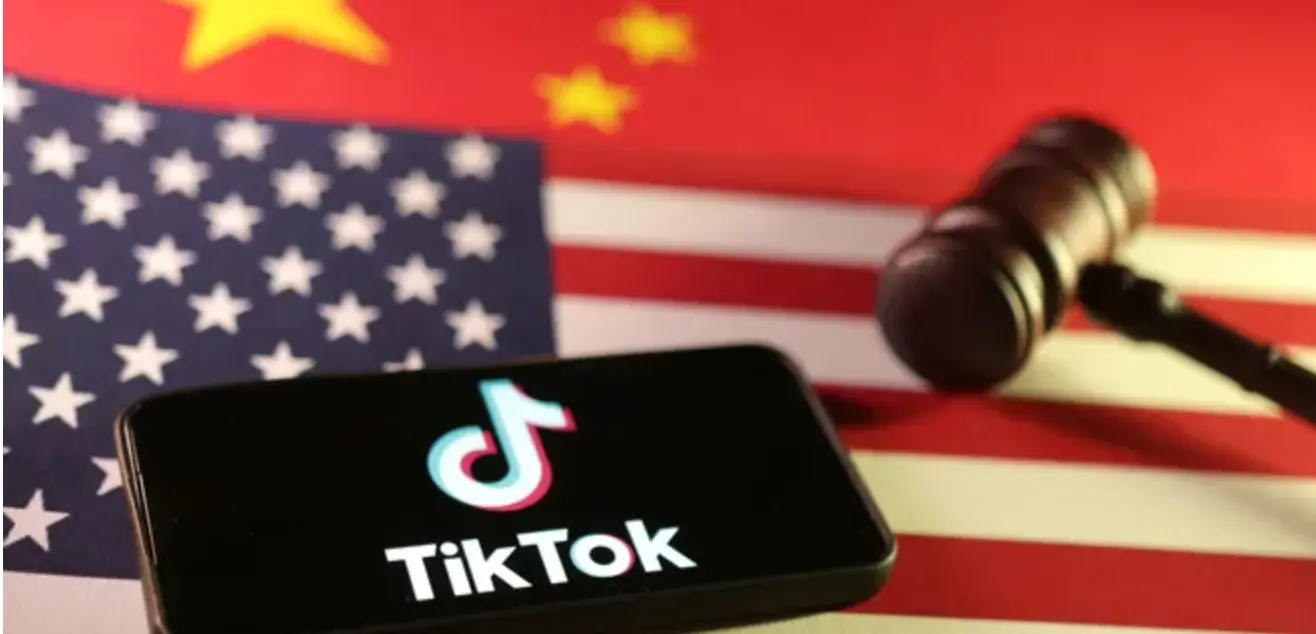
The Story Behind the TikTok Ban
On March 13, 2024, a rare bipartisan consensus emerged in U.S. politics: the House of Representatives overwhelmingly passed a bill with a vote of 352-65, demanding that ByteDance sell TikTok within 165 days or face a ban from the U.S. market. This is not the first time TikTok has faced a ban threat; similar attempts were made during the Trump administration in 2020.
According to the bill, if ByteDance fails to sell TikTok to a non-Chinese company within the specified timeframe, TikTok will be forced to be removed from U.S. app stores, preventing new users from downloading it and existing users from receiving updates. Supporters of this measure argue that TikTok could be used by the Chinese government to collect data on U.S. users or spread harmful information.
In response, TikTok CEO Shou Zi Chew stated in a video statement that the company would "do everything possible" to prevent the bill from taking effect, emphasizing that "if this ban bill becomes law, it will lead to a ban on TikTok in the U.S." TikTok has consistently denied any improper relationship with the Chinese government and stated that it has invested 1.5 billion dollars in data security projects (Project Texas).
The bill, officially titled the "Protecting Americans from Foreign Adversaries Act" (H.R. 7521), requires that the operation of relevant applications be conducted entirely within the U.S., unless ByteDance undergoes a qualified asset divestiture as required by the president. The bill was passed by the Senate with a vote of 79-18 and was signed into law by President Biden on April 24, 2024. If ByteDance fails to complete the sale, the ban will take effect on January 19, 2025, with a possible extension of 90 days.
Notably, several states have already banned TikTok on government devices, including Montana, which previously attempted to ban the app entirely, but this was paused by a federal judge on the grounds of violating the First Amendment.
An Unexpected Cultural Bridge: The "TikTok Refugee Wave" on RedNote
As the countdown to the ban begins, an unexpected phenomenon is occurring: a large influx of American users is migrating to the Chinese social platform RedNote (RedNote). These users, who refer to themselves as "TikTok refugees," have not only propelled RedNote to become the most downloaded app in the U.S. app store but have also created a unique space for cross-cultural exchange.
Here, I have observed several heartwarming phenomena:
They are posting "final farewell videos" on TikTok and X, tearfully bidding goodbye to online friends, and learning to say "hello," "goodbye," and "thank you" in Chinese to express their dissatisfaction with the TikTok ban.
Now, these users have gathered on RedNote, sharing their daily lives and pet stories, eagerly exploring the lives of Chinese netizens across the ocean.
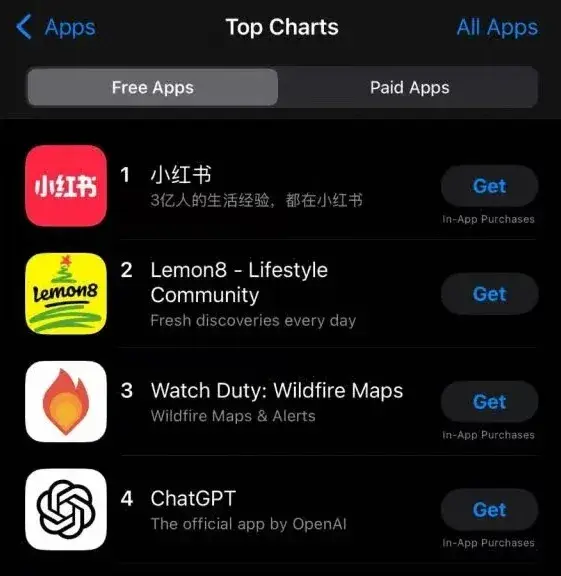
The "TikTok Refugee Wave" on RedNote
Recently, I noticed an interesting phenomenon on RedNote: a significant number of American users have started flocking to this social platform, which was originally aimed at Chinese users. They have given themselves a rather dramatic name—"TikTok refugees." Under the "TikTok Refugee" topic, over 63,000 posts have accumulated, filled with amusing cultural clashes.
What impressed me the most is how these newcomers are trying to adapt to RedNote's "unwritten rules."
Interestingly, some Chinese users humorously refer to themselves as "Chinese spies," using humor to diffuse American officials' concerns about the social platform.
While browsing through these cross-cultural interactions, I discovered several particularly warm and amusing phenomena:
Heartwarming "Joining Rituals"
New TikTok refugees are sharing cat photos to gain acceptance from the native RedNote users, commonly known as paying the "cat tax" 🐱
This is one of the most popular "joining rituals" on RedNote. American users quickly learned this unique tradition of sharing their lives—first "paying tax" before sharing. They are posting pictures of their cats with Chinese tags like #交猫咪税 (paying cat tax) and #新人报到 (newcomer report), melting the hearts of countless Chinese netizens. Interestingly, dog owners have creatively invented the "dog tax," enriching this tradition even further.
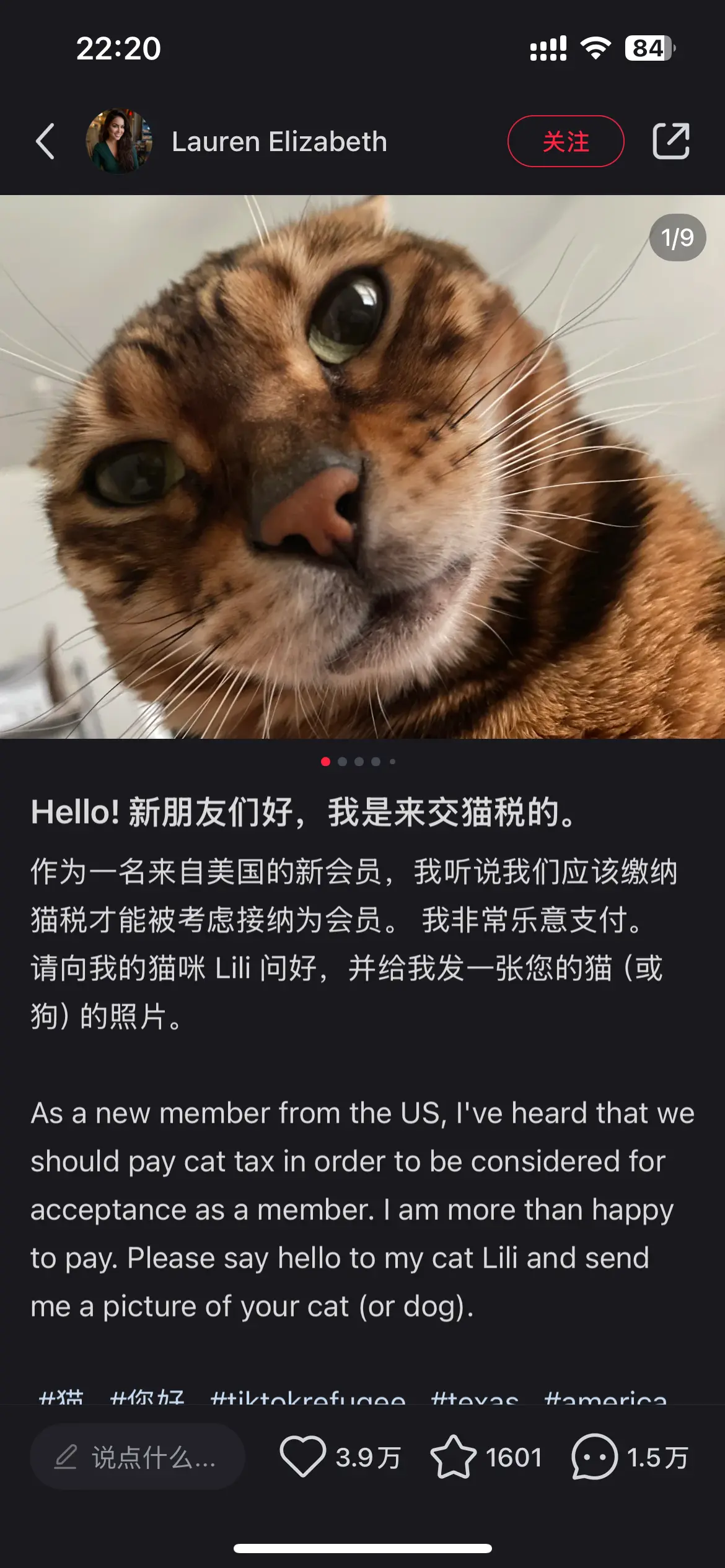
Doing English Reading Comprehension Exercises
Faced with an increasing number of overseas users, Chinese RedNote users have posted their English reading comprehension exercises, seeking help. This atmosphere of mutual learning fills the platform with joy and warmth 🤪
This phenomenon reflects a unique form of cultural exchange. Chinese students not only receive authentic English assistance but also make friends from English-speaking countries. Meanwhile, American users are eager to showcase their language skills while developing a keen interest in China's education system.
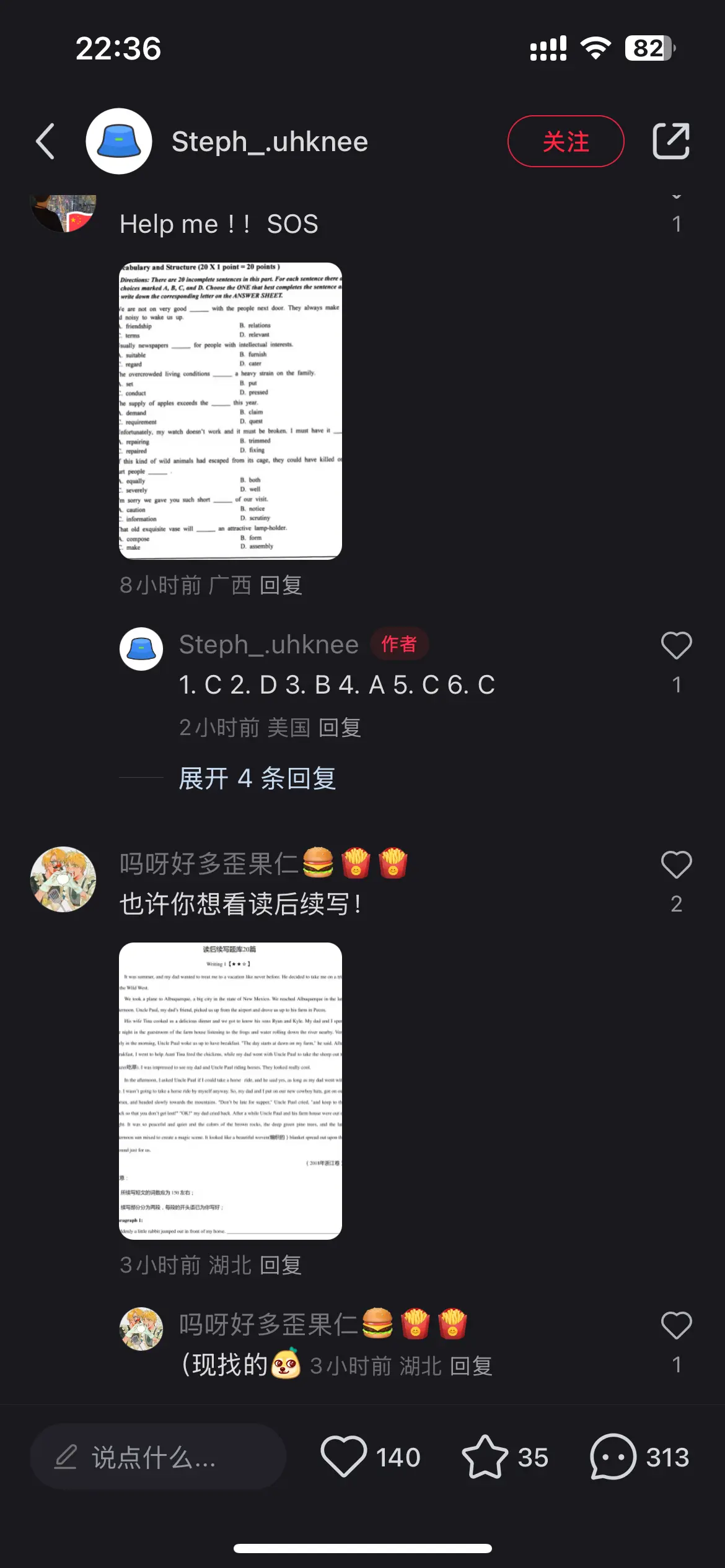
Asking for Help with Math Problems
Interestingly, based on the stereotype that "Chinese people are good at math," many American users have started sharing their math problems on the platform. This self-deprecating interaction has unexpectedly become a unique form of communication 🤪
This phenomenon reflects how cultural stereotypes can evolve into amusing social topics. Chinese netizens find it both funny and are happy to help solve the problems. Some even joke, "This might be the first time someone gets free tutoring because of a stereotype." This lighthearted and humorous interaction turns what could be an uncomfortable stereotype into a bridge that brings people closer together.
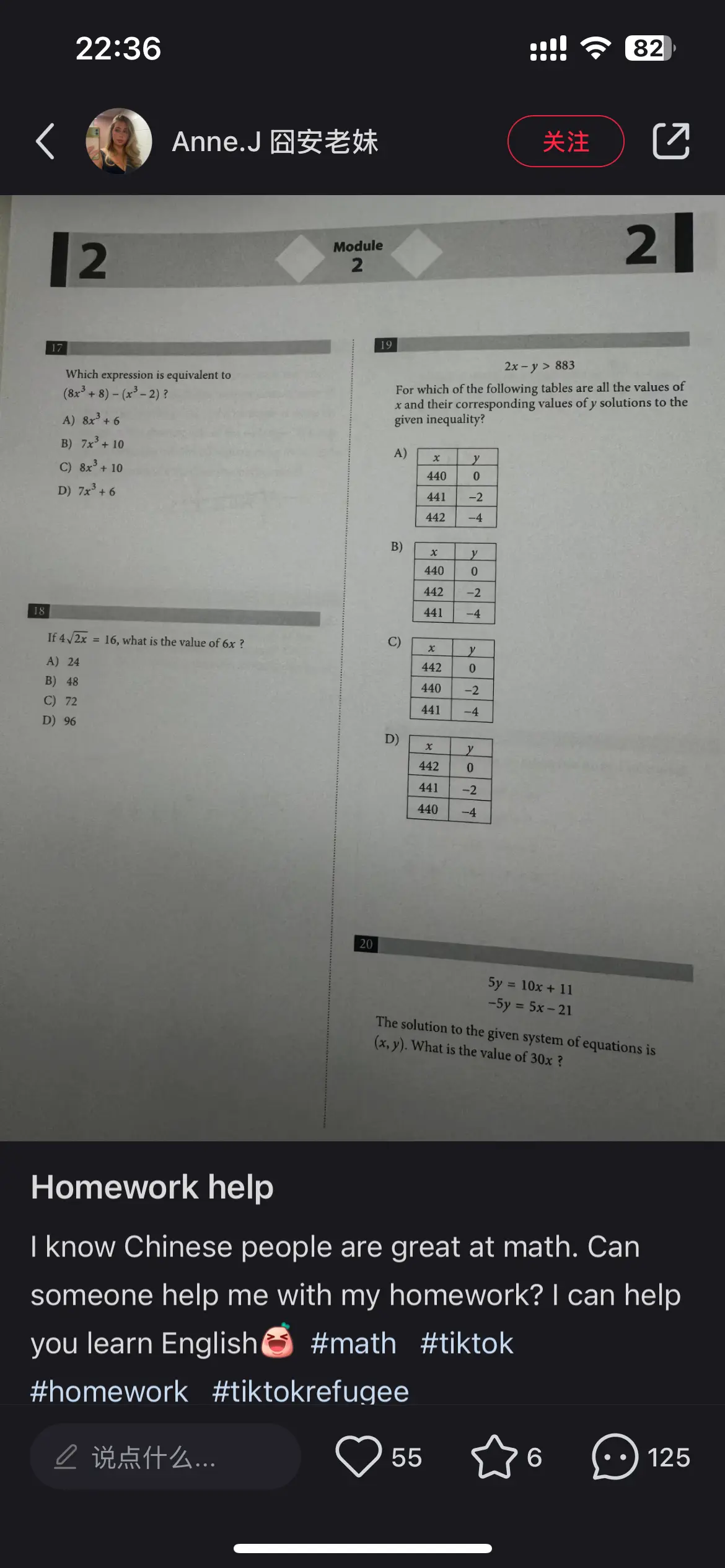
Breaking Barriers Through Daily Sharing
"I always thought that Chinese people's lives were completely different from ours, but after seeing your daily shares, I realized we all binge-watch shows, raise pets, and worry about work..."
On RedNote, this unique cross-cultural platform, the interactions between American users and Chinese netizens have shattered many preconceived notions. They curiously inquire about each other's daily lives: from what they eat for breakfast to how they spend their weekends; from workplace culture to views on relationships. These seemingly mundane conversations have become the most genuine form of cultural exchange.
Interestingly, both sides have discovered that beneath the differences lie many commonalities. An American user commented, "I used to think there was a vast ocean between us, but now it feels like we're neighbors." Meanwhile, a Chinese netizen said, "Turns out they also worry about housing prices and love binge-watching shows, just like us."
This grassroots level of communication can bridge distances more effectively than any official diplomacy.
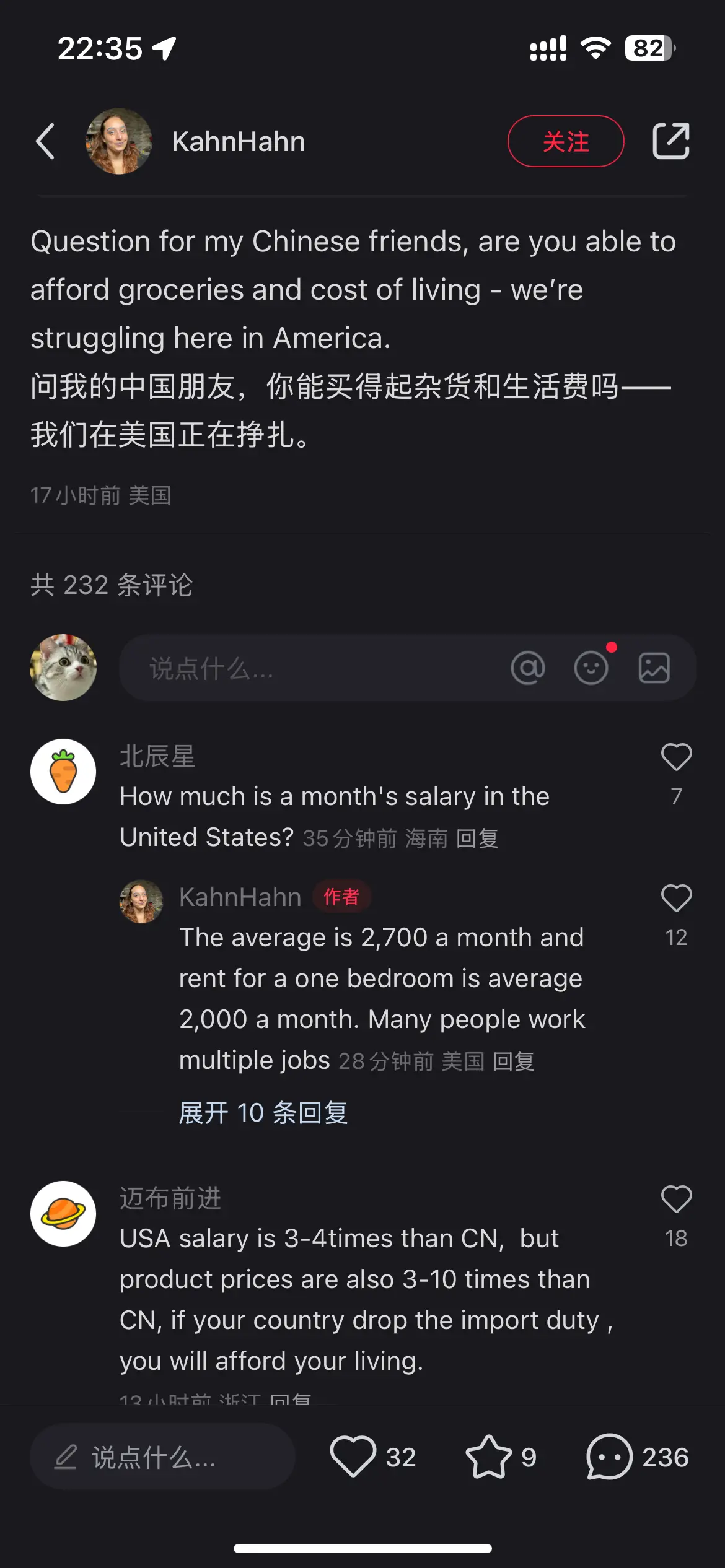
Why RedNote? An In-Depth Analysis
The fact that RedNote has become the destination for this "digital immigration wave" is no coincidence:
First, many American users have lost trust in local tech giants. They are reluctant to use X (formerly Twitter), finding Elon Musk's controversial remarks and management style off-putting.
Second, users have expressed disappointment with Meta's Instagram and Facebook. The algorithms, rampant advertising, and Zuckerberg's controversial actions were precisely why they initially turned to TikTok. Some users even believe that Zuckerberg played a role in pushing for the TikTok ban, as Meta stands to gain the most.
As for ByteDance's Lemon8, despite its similar interface and features to RedNote, users are concerned that it may face the same policy risks since it belongs to the same company as TikTok. As one user put it, "There's no reason to believe that Lemon8 will do better after TikTok is banned."
More importantly, RedNote has built a substantial user base overseas due to its unique community atmosphere and high-quality content. As one of the few Chinese social apps in the U.S. app store, it offers users a fresh perspective on Chinese culture and lifestyle. Although the platform still faces some barriers in cross-language communication, such as the lack of built-in translation features, this has instead sparked users' interest in learning Chinese, creating a unique atmosphere for cross-cultural exchange.
Another possible factor is that RedNote's logo is red and features Chinese characters, which adds a symbolic meaning of resistance.
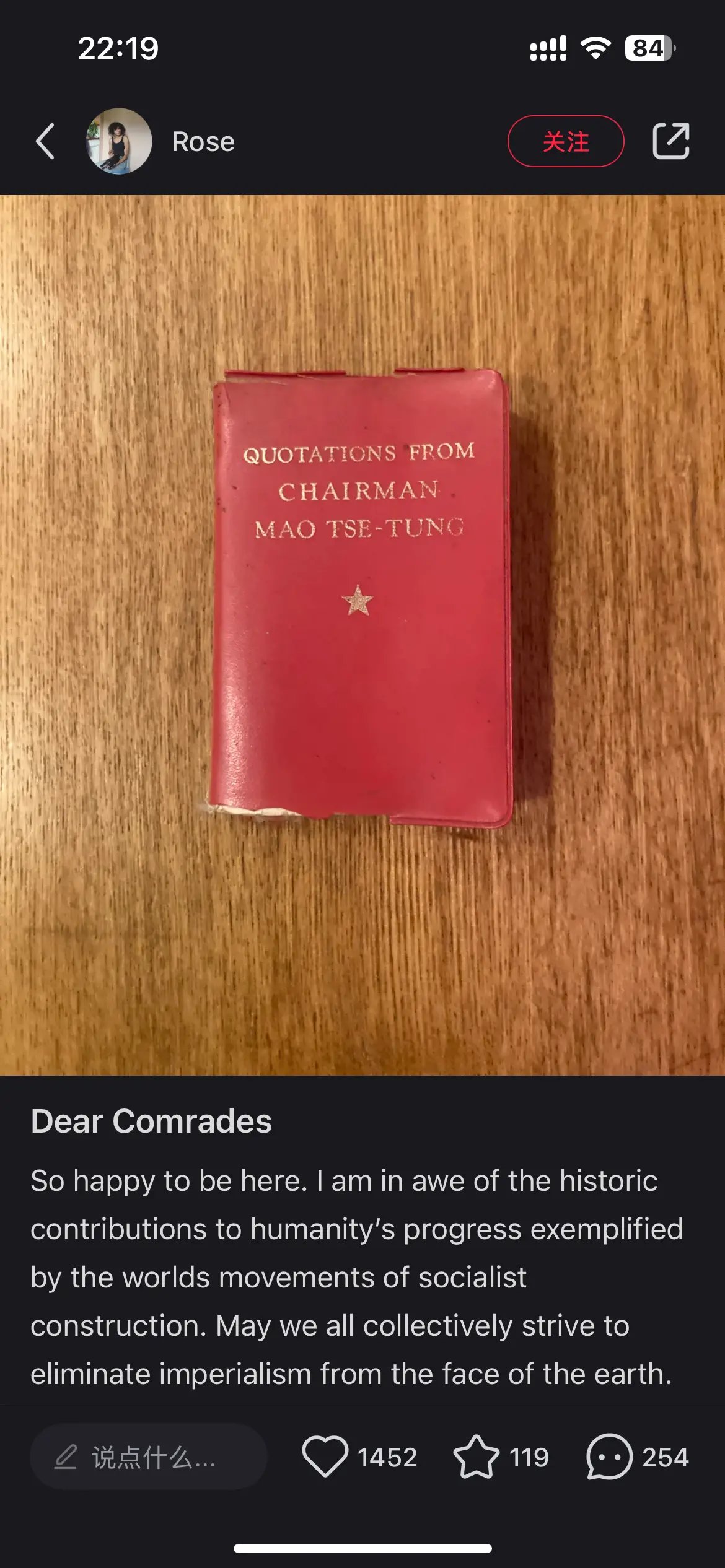
Conclusion: Human Connections Beyond Politics
In today's increasingly complex U.S.-China relations, this unexpected "digital immigration wave" may bring a glimmer of hope: even in an era of political opposition, ordinary people still yearn for genuine communication and understanding.
This grassroots cultural fusion is, in many ways, more meaningful than any official diplomacy. It proves that when we set aside our prejudices, the distance between people is not as far as it seems.
May this hard-won understanding and tolerance contribute a small yet genuine force for world peace.